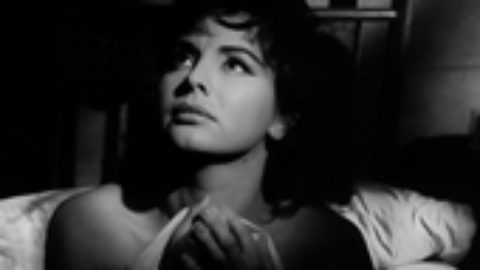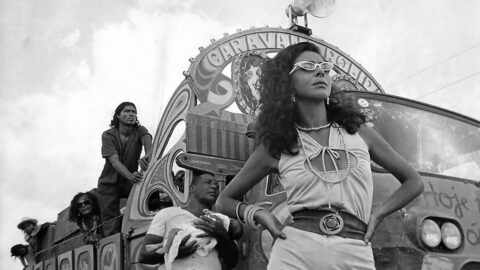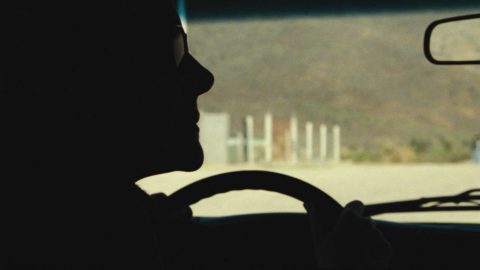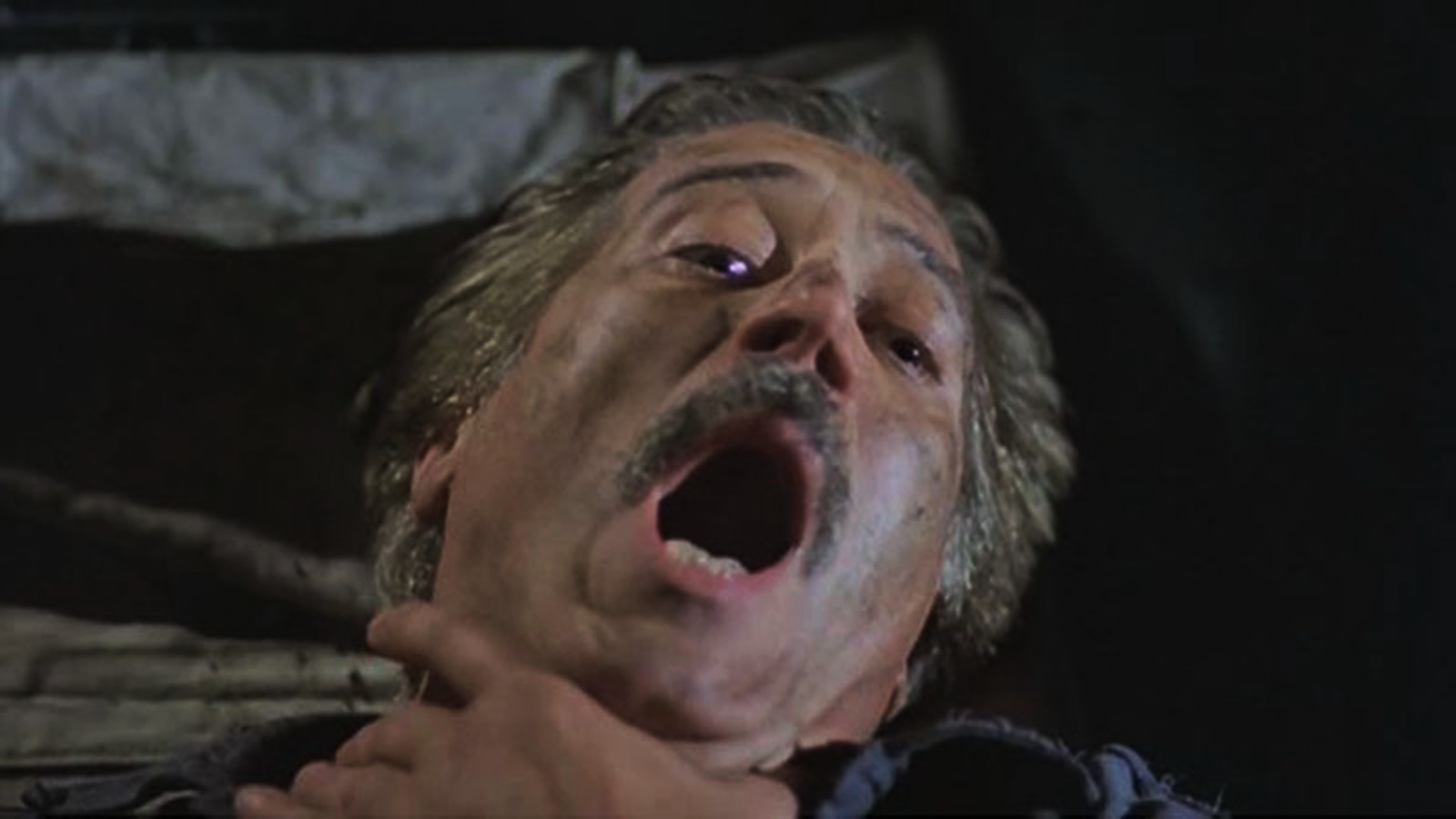
Shock to the System
In 1981, during the twilight years of Argentina’s “War on Terrorism”—a Dirty War during which thousands of supposedly subversive leftists were “disappeared” by the Right in the name of social and moral reform—Adolfo Aristarain made a small, sophisticated thriller called Time of Revenge (Tiempo de revancha), or Time for Revenge, depending on how loosely you want to translate it. The distinction merits reflection: “When is it right to fight back?” is one of Aristarain’s primary concerns, and though the briskly paced film understandably sidesteps explicit criticism of General Jorge Rafael Videla’s military regime—a waning junta intent on snuffing out leftist sympathizers through a process of torture, kidnapping, and murder-it emphatically makes a villain out of the System and a hero out of a radical.
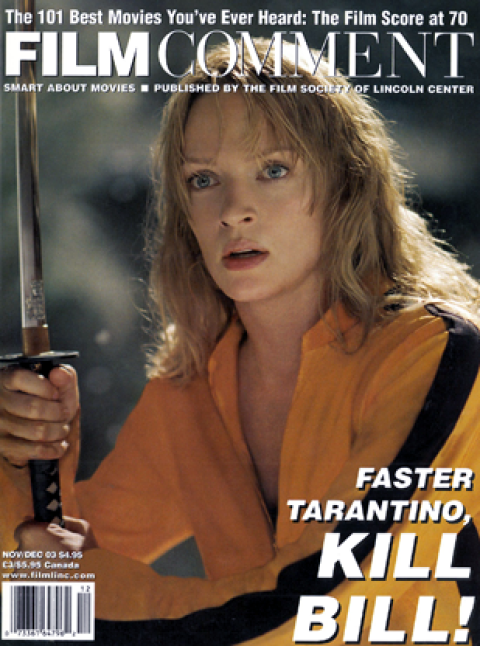
The film stays well within the reassuring conventions of a thriller, capped with a tone of Peronist gusto that stops just short of the nostalgic. But there’s a gloomy aftertaste. Videla’s tyranny, from 1976 to 1983, marks the nadir in Argentina’s modem history, and throughout Time of Revenge, a profound sense of faithlessness drives the action, undermining our expectations with surprising acts of strength, all the way to its irreparable shock ending. Aristarain’s mise en scene, shallow in focus and plain in design, yokes realism to austerity—this is an empty world of blues and grays, a world unsure of how to repair itself, wholly uninterested in incidental beauty. The mundane locations are somehow both pitch-perfect and fuzzy, if not obscured, filmed from low, claustrophobic angles in a loosely probing, not-quite-handheld style that intermittently suggests a deliberately namby-pamby spin on late Buñuel: we start close on an object, follow its use, then widen out to a frankly drab setting. Mirrors, a thermos of red wine, medical tape, a mechanical Santa Claus—all develop a subtle, if not urbane, collective significance.
The loose resemblance to the great surrealist is telling—the situations in Time of Revenge are tinged with a whiff of madness and melancholy, as though stark, implausible human behavior floats just outside our communal sense of smell. Aristarain delights in guiding the eye, at times to punctuate or foreshadow, at others merely to color. The camera lingers on a desultory game of pool, a moment of rest, a quick glance. With the exception of a few strategically placed swish pans, he seems unconcerned with precision, opting instead to foreground his more virtuous characters—protagonist Bengoa, his bemused wife Amanda, the doomed activist Bruno di Toro, the pro-union “mercenary” Larsen with hands-off, unglamorous honesty. Time of Revenge is, in this way, something of a relic: a modest, politically bent Chabrolian thriller, content to objectively observe the complex undulations of adult behavior. And yet, licking at the film’s heels is the flame of Buñuelian waggishness, starting with the not-insignificant detail that its hero spends a good portion of the film posing as a mute until, in the last frames, he nonchalantly cuts his own tongue off with a straight razor.
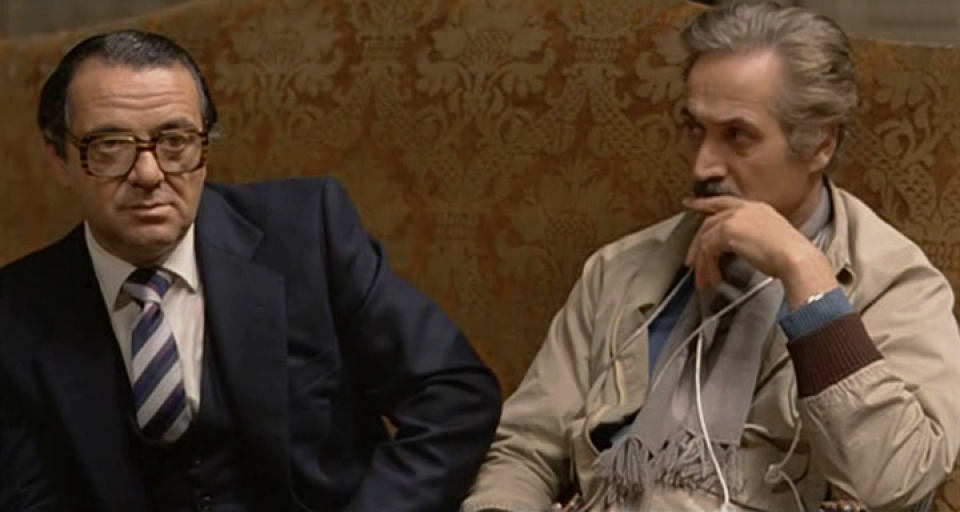
In an effort to get his life in order, Pedro Bengoa (Federico Luppi), a demolitions expert and former unionist from Buenos Aires, interviews for a job with the Tulsaco copper-mining company. Assuring the company, a small but useful cog in an international conglomerate, that he believes “politics are for the politicians,” Bengoa is hired to oversee blasting at a rural quarry. Even before the first explosive charge is placed, he makes an impression. “You are the leader type,” the quarry’s manager, Rossi, tells him. “Don’t lose it.”
It’s important to note that a “leader type” in Videla’s Argentina was categorically deceptive and ruthless, aruciously wagging his finger from the safety of a heavily guarded swamp. Bengoa, following the example of market-driven fascism, is indeed a willful, unflinching cheat. He enters Tulsaco under a whitewash of false references and unmentioned activism. Like a sullied hero from Leone or Peckinpah or (most conspicuously) Coppola, he wants to lay the past to rest—his dark secret merely a passionate belief in workers’ rights—but is unable to turn a blind eye when management pressure causes the deaths of two workers. Under the jittery, sweat-soaked persuasion of his old friend Bruno di Toro (Ulises Dumont)—with whom he shares a falsified past—he agrees to help stage an accident from which Bruno will awaken completely unable to speak and consequently armed with the leverage to milk Tulsaco for hundreds of thousands of dollars in compensation. Time of Revenge is, in essence, an unromantic spin on a classic genre heist—a foolproof one-last-job-and-then-we’re-out-for-good. But the plan inevitably goes awry, leaving Bruno dead and Bengoa playing dumb.
Our hero, in effect, spends the rest of the film as a hermetic crusader, his thoughts obscure, his determination stupefying. Neither Little Man nor powerhouse, Bengoa is an intriguingly difficult protagonist to pin down. He takes on an oily lawyer, Larsen (Julio De Grazia), for whom Bruno had not so convincingly vouched (“He’s fine …. He’s a crook!”), and holes up in a hotel with his wife (Haydee Padilla), who spends anxious nights watching him inhale decongestants and tape his mouth shut so as not to make an accidental nocturnal peep, before collapsing into bed—a strange, ascetic routine that Aristarain constantly returns to. “How long are you going to continue with this?” she asks. He scribbles on a message board: “300,000 DÓLARES.”
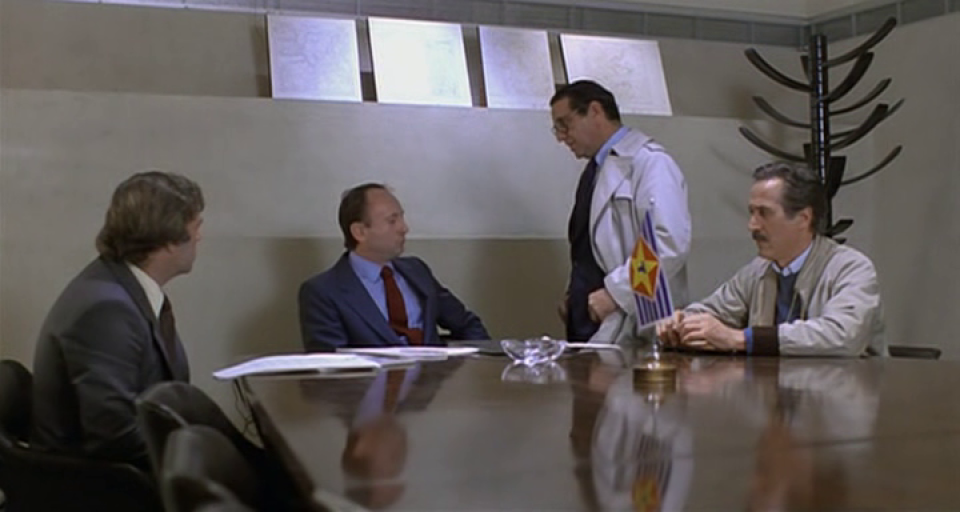
Capitalism is under fire here, certainly, but the bigger issue for Aristarain is pinched human nature. Mired in a corrupt society, the characters thrive on bad faith and greed, more or less convinced that nothing, save the exchange rate, can be trusted. Bengoa embodies the film’s fusions and contradictions—strains of genre posturing (cowboy, con man), impulse (greed, defiance), and class (miner, manager). As played by Luppi, an Argentine legend and an Aristarain favorite, Bengoa has the begrudging charm of a man who hates to be told what to do, his stalwart face a challenge to the cliffs he must demolish. He sits beside his lawyer throughout a fierce parley at the estate of Tulsaco’s CEO—the redoubtably named Don Guido Ventura (Jorge Haker)—slumped down, silent, cheek resting on his hand, seemingly bored by the depravity of it all. As Larsen reaches an unofficial “settlement” for half a million dollars (in a cynical nod to domestic paralysis, the film never mentions the near-worthless Argentine peso), Bengoa holds up a sign—“No deal. I’m not for sale”—and walks out. “You don’t have a chance,” Ventura goads. Bengoa’s reply: a voiceless “Fuck off.” Anger seizes Bengoa’s lips, yet all we hear is the sound of his right arm furiously crossing the other.
In outline this plot is far from new—from Mr. Smith to Erin Brockovich, the System has been turned upside down by stubborn underdogs—but seldom has a civic hero been as placidly inscrutable as Bengoa. Like Edward G. Robinson’s mild-mannered sops in the late noir oddities of Fritz Lang, he remains steady and stoic in a world blundering out of control, a foil for the tragic ravings of a dark society. In some ways, we’re drawn more to Larsen’s trenchcoated, wild instability and di Toro’s unnerving mournfulness—at least we know what they’re feeling, at least they’re human. With Bengoa, it’s more a leap of faith. Not only has our hero chosen to go through with a startlingly elaborate con that virtually no one buys—espousing two wrongs to make a right, which from an American viewer’s point of view could only fly in a really, truly messed-up society (right?)—but he almost never reveals any personal weakness. He has human frailties, of course (he quarrels with his daughter’s boyfriend, winces at his father’s scorn, frantically tears apart his hotel room after discovering it has been bugged), but he can also, after a few attempts, stub out a cigarette on his bare forearm without a squeal.
In other words, the film works strenuously to subvert our identification with Bengoa. A whistle-blower without a whistle, he takes on corporate intimidation through a kind of anti-activism, a counterintuitive discipline stipulating that the most effective form of attack (assuming you have sufficient leverage) is to keep quiet. This raises the question: Why all the complication? Why can’t Bengoa act like a regular movie hero and outwit corruption on his own honorable terms?
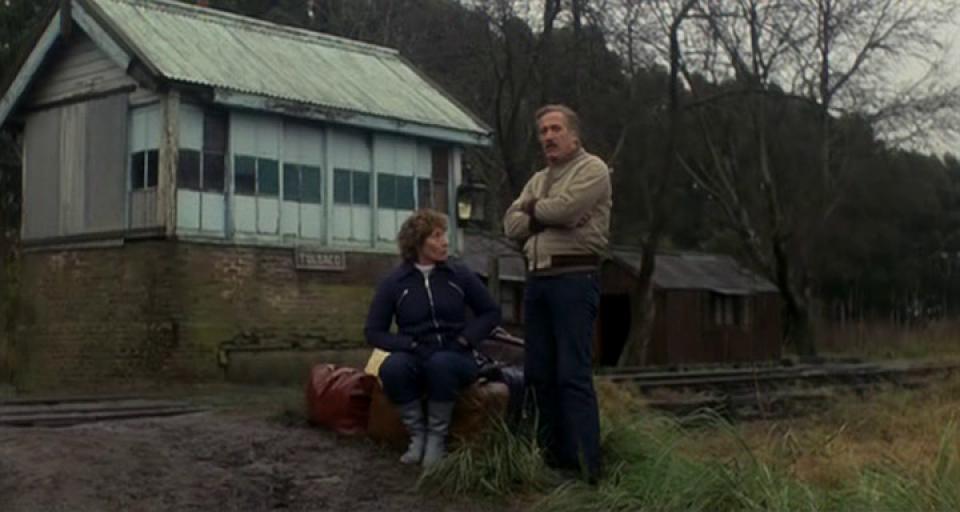
Because, Aristarain seems to be suggesting, the cruel truth is that this is how battles are won under dictatorship—not with a bang but a whimper. When the trial against management ends (“Tulsaco guilty, Bengoa dumb,” Larsen jokes), Bengoa returns home to Amanda. Proud and tremulous, he only just stops short of blurting out the news, still fearful that the apartment may be bugged. He tapes down the doorbell button, turns up the stereo, and undresses, inviting Amanda into a noisy shower. Only then does he smother her in an ecstatic embrace and yell, through flooded tears: “We won, Amanda! I beat them! I beat them!”
It’s a key moment in Argentine cinema, a shock of exquisite pain and sweetness. And it’s the closest the film comes to a bare political message: the radical, his tears hidden at first by the shower’s water, has won a small, poignant victory for the working class, his father’s class, his country—he has refused corruption. It’s the closest Aristarain allows us to get to Bengoa, and the last we hear from him.
Time of Revenge was released at a time when Argentina—and its film industry—was in desperate need of resuscitation. Videla and his regime would continue their absurd campaign for another two years, concluding it with the tragic miscalculation of the Falklands War, a bumbling attempt to stir up nationalism. The film industry would flounder for a decade, before government support spurred a resurgence in the mid-Nineties.
So where does Aristarain’s film stand now? Twenty years before its release, Leopoldo Torre Nilsson’s Hand in the Trap (61), a gothic melodrama of a forgotten woman, provoked a sense of deep national shame, while 20 years on, Lucretia Martel’s La Ciénaga (01) warned of an even bleaker form of cultural paralysis, as a pair of mongrel generations sank into apathy. Watching them now, their designs are certainly tighter than Aristarain’s, their visions sharper.
Yet neither film went beyond the national abstractions of shame and regret, nor directly confronted the political sensibilities behind such abstractions—essentially upholding political passivity. They refused to give oppression a countenance and, ultimately, to give us hope. Aristarain’s ending, on the other hand, while as revolting and cynical as any in history, somehow managed to leave us with the sense that this world can be changed.
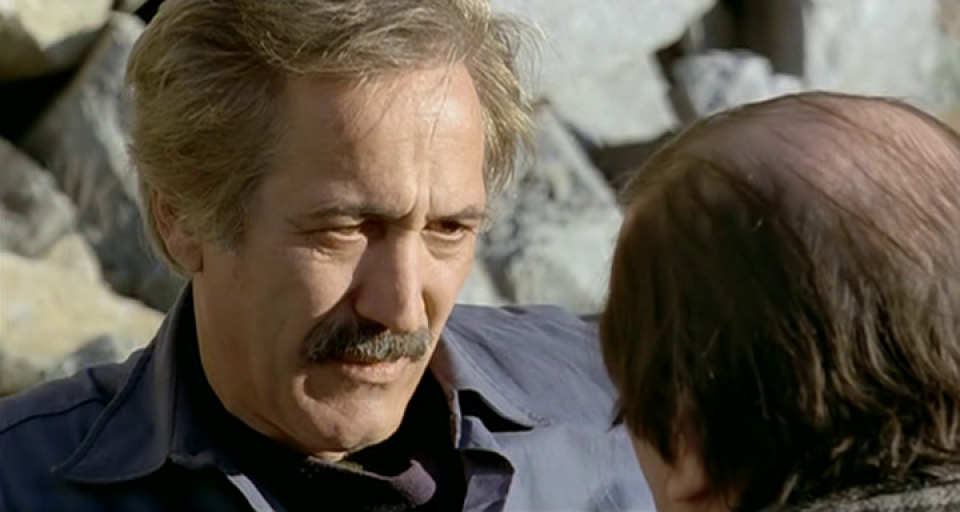
In his late father’s workshop, Bengoa dresses in a crisp shirt and tie, casually listening to a Christmas present” from Tulsaco—the tape-recorded highlights of his life: his meeting with Don Guido, his day in court, even his shower with Amanda. The message from Tulsaco is clear: you will never escape. Surrounded by mirrors—which loom throughout Time of Revenge—Bengoa, calm and prepared, reaches for a straight razor. With just the faintest hint of an off-kilter smile, he pulls his tongue out and slices it off, and we cut immediately to a clammy shot of a mechanical toy Santa, scored to the tune of a creepy children’s Christmas carol. The credits roll. It’s Christmas again in Buenos Aires—hot, uneasy, profane.
Why the (literal) gag? In the end, our hero remains as remote as ever, though the smile indicates a certain level of crazy resolve. Bengoa’s act condenses and clarifies the paradoxical mindset of a tyrannized but angry public—simultaneously enacting complete capitulation and complete refusal, he renders himself literally speechless, incapable of either protest or self-incrimination. In hopelessly irrational times, the film is saying, communication is always lost in the end. Aristarain knew that to close on anything less than murky desperation would be dishonest, futile. With no escape in sight from the regime’s “social reform,” the time for revenge had come.



